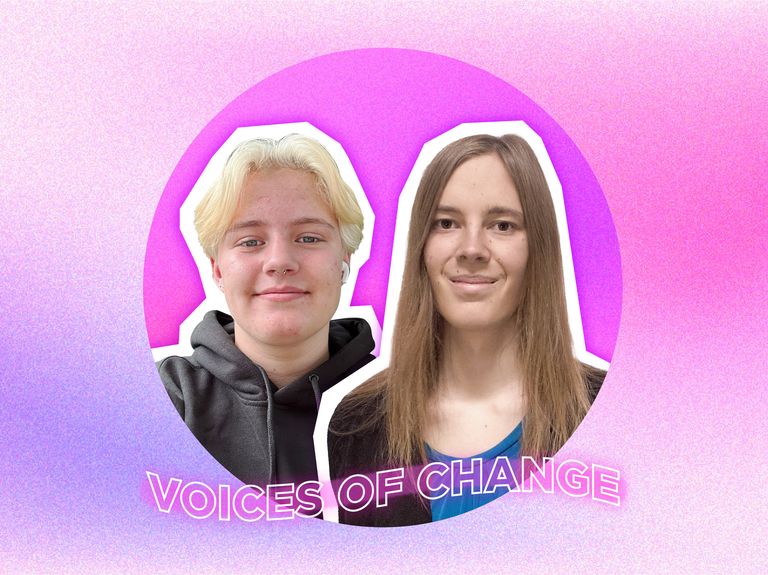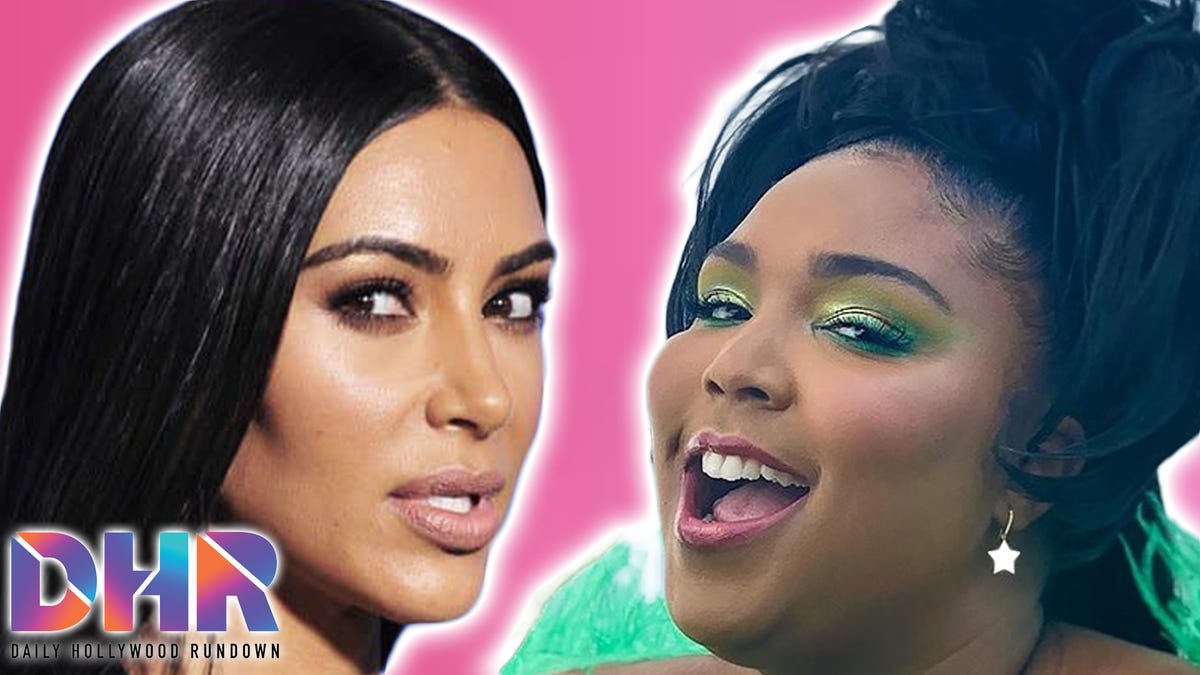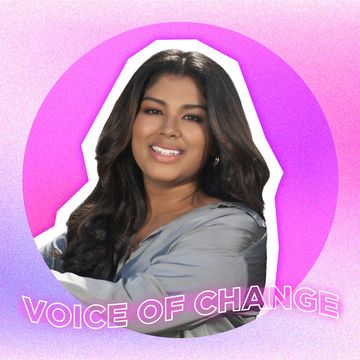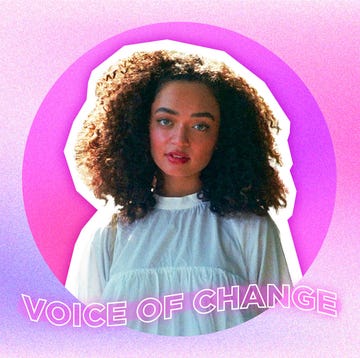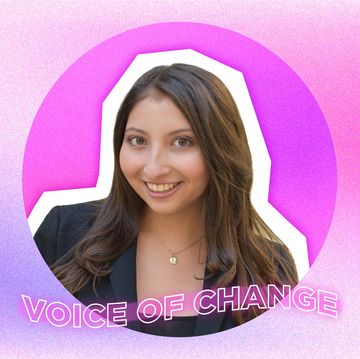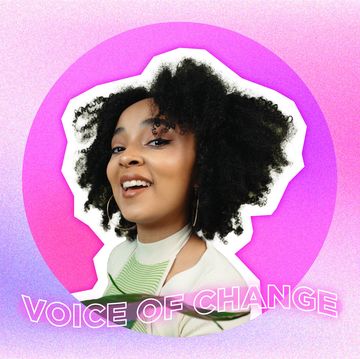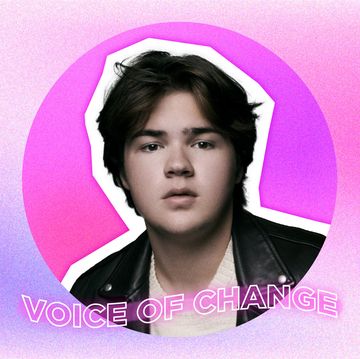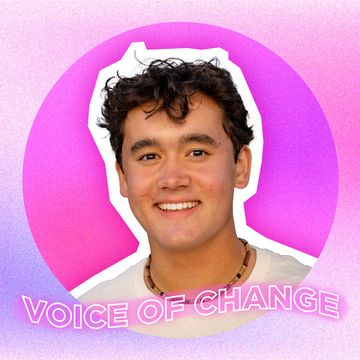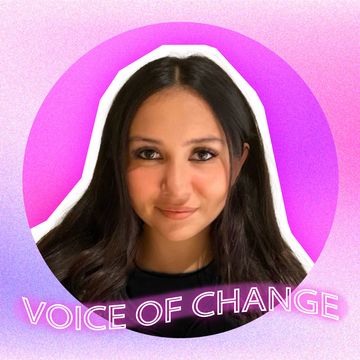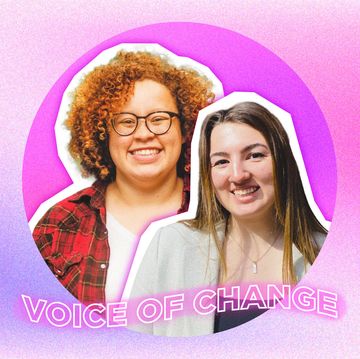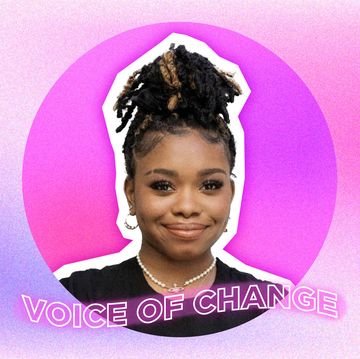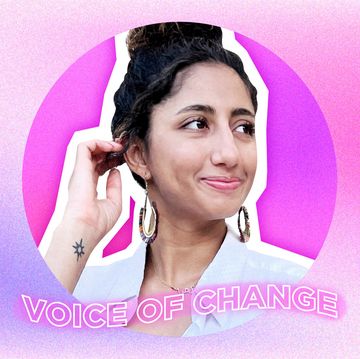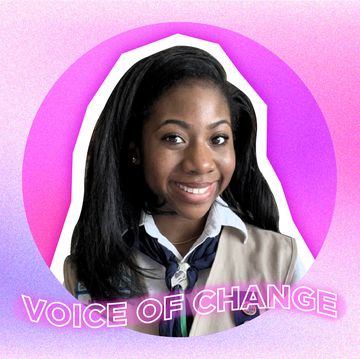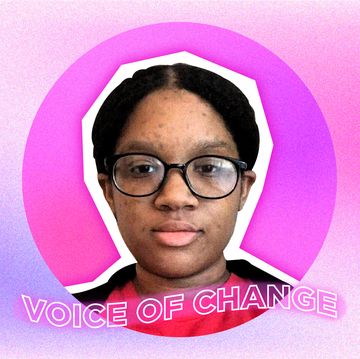Even during the most challenging times in history, it's important to highlight those who are continuing to follow their dreams and are taking strides to make the world a better place. Each month, Seventeen is honoring young people as Voices of Change, those who are making a difference in their community and the world at large.
Content warning: This article contains references to suicide some may find upsetting. Reader discretion is advised.
On April 28, 2023, Montana became one of 19 states to ban gender-affirming, age-appropriate healthcare for transgender youth. Senate Bill 99, also known as the Youth Health Protection Act, is planned to go into effect on October 1, but two trans teens, Phoebe Cross and Scarlet van Garderen, their families, two medical providers, the American Civil Liberties Union of Montana, American Civil Liberties Union Foundation LGBT & HIV Project, Lamda Legal, and Perkins Coie LLP, have filed a lawsuit to challenge this ban and protect the rights and wellbeing of trans teens and kids throughout their state.
For Phoebe, Scarlet, and trans people everywhere, gender-affirming care, which includes hormone therapy, puberty blockers, and surgical procedures, is critical in easing gender dysphoria and allows them to live as their authentic selves. Findings from the Journal of the American Medical Association in 2022 show that access to these treatments lowers rates of depression and suicidality in trans and nonbinary youth. But despite the studies that prove its mental, emotional, and social benefits, and the support from at least 30 major medical organizations, restrictions on gender-affirming care persist nationwide, eliminating access to life-saving healthcare for 30.9 percent of trans youth, the Human Rights Campaign reports.
When Governor Greg Gianforte signed SB 99 into law, Phoebe, Scarlet, and their families couldn’t ignore the call to stand up and fight for the rights not only of trans people but of all vulnerable communities in their state. Phoebe had previously testified against SB 99 as it was debated in the Montana House in March, and when the ACLU declared their intent to sue, both Phoebe and Scarlet knew that joining the lawsuit was the necessary next step in ensuring this law isn’t implemented.
“You cannot imagine how terrible it feels to have elected officials talking about you as if you were a monster or a pawn in some political game,” Scarlet, 16, tells Seventeen. “Speaking out against this extremism shows other trans people that they aren’t alone, they belong here as much as anyone else, and there are people standing up for them, fighting for them.”
Phoebe, 15, adds, “[Politicians] should have no say in what I can access and why I access it. This decision is between my parents, my medical professionals, and me.” Trans rights are human rights, and for their fight against SB 99 and their commitment to amplifying the issues facing the trans community across the country, Phoebe Cross and Scarlet van Garderen are recognized as Seventeen Voices of Change.
17: What motivated you to sue Montana over its ban on gender-affirming care for trans youth?
Phoebe Cross: Senate Bill 99 is blatantly stripping me of my rights and those of other trans kids. This is a life-saving treatment that I access every day and keeps me, a lot of my friends, and many other people in my community alive. The Montana government is interfering in my decisions with my doctors and medical professionals, which is blatant government overreach. They should not be able to dictate decisions that I'm making with medical professionals. That goes along with the consensus of every major medical association. It's incredibly unconstitutional and because of that, I am suing. I don't think this bill should pass and I think it's going to directly harm me and other trans youth.
Scarlet van Garderen: I felt like I needed to stand up for my trans peers and everybody in the state who this bill is attacking, and fight the transphobia that this bill reinforces.
17: Can you explain why the ban is not protecting trans youth, even though it claims to be?
PC: They're hiding behind the disguise of, “this is to protect the children,” when in fact, it's the opposite. It's going to harm children and put vulnerable communities at risk. Young trans kids are incredibly vulnerable and removing the care that keeps them safe and alive, is putting them in danger of suicide, especially. This is medical care that's been proven to reduce the rates of suicide in trans kids. It's really, really important that this ban doesn't go into effect because its ramifications will be immense.
SVG: The healthcare that the bill is trying to take away from the trans community is vital in making us feel like ourselves in our bodies. Without this care, the majority of trans youth feel like we’re in the wrong body. It's extremely uncomfortable and really harmful to our mental health and our overall well-being. It is hard to explain just how helpful gender-affirming care is, but it has truly been life-changing for me in such a positive way. I cannot imagine living without it, and I know many others who feel the same. I'd also like to point out that there are no other effective treatment options. They are taking away the one thing that makes life bearable.
[Editor’s Note: Findings from a 2022 study from the Journal of the American Medical Association found that access to gender-affirming care lowers rates of depression and risk of suicide in transgender and nonbinary youth. Similarly, a 2021 peer-reviewed study by The Trevor Project, published in the Journal of Adolescent Health found that gender-affirming hormone therapy (GAHT) is “significantly related to lower rates of depression, suicidal thoughts, and suicide attempts among transgender and nonbinary youth.”]
17: How can others take action to help overturn this ban?
PC: The biggest thing that I recommend people do is reach out to your representatives. Their job is to represent their constituents and you are one of them, so it's very important to either share your story with them or express your support for the trans community. It's really important to help support and spread the message of trans rights, and to help push these messages that people are trying to get out, whether that's through your general community, friends, family, or over social media. Then, education. It's really important that we're educating people [on the issues facing trans people]. Educating either those around you or on social media can have a very large impact.
SVG: Share trans people’s stories, educate yourself and other people on what’s happening in the trans community, and do your part to let people in high political positions know how harmful these bans are to the trans community. You can also volunteer or donate to organizations like the American Civil Liberties Union, the Human Rights Campaign, and The Trevor Project, that are fighting with us to protect trans rights. And, when you hear people spreading hate, even if they are “just making a joke,” let them know that it is not OK. We need all of you to stand up and be a Voice of Change.
17: What challenges have you faced in this lawsuit?
PC: The public reception of this case. While it's overwhelmingly positive, there are people who disagree with what I'm doing. While it doesn't affect me too much, sentiments like, 'I'm just doing this because I've been told to,' or that I've been indoctrinated, is really frustrating. Those ideologies are very harmful to trans people. The hardest part is standing my ground in my opinions and what I'm doing. I know it's right and it doesn't matter if other people disagree with that opinion. I know that I'm doing the right thing.
SVG: Mostly, the bill getting passed and the transphobia across the media, our state, and our legislature. It is very disheartening to hear people say things about my trans community that are just flat-out untrue and intentionally disrespectful. The hearings on this bill were especially bad. There was a trans youth in my county that attempted suicide while listening to the hearing because they just couldn't take it anymore. When a trans legislator brought this up during a later hearing, telling the House of Representatives that they would have blood on their hands if they voted for this bill, she was censured for speaking the truth because it was so awful they didn't want to hear it. So the challenge has been to keep pushing forward and not let it get me down. That isn't always easy.
[Editor’s Note: In April 2023, Montana House Republicans voted to censure and bar Representative Zooey Zephyr, Montana’s first transgender state legislator, from the House floor after she told lawmakers they’d have “blood on their hands” if they voted in support of the ban on gender-affirming care for minors, according to NBC News.]
17: What has kept you motivated in this fight?
PC: My close friends are also trans. I have a ton of trans friends who access this healthcare as well, and it's very important to them. My little sister is also my greatest support during this, and I love her very much, so I'm doing it partially for her. Even though she's not trans, I'm setting a precedent and I want her to know that she has avenues to stand up for herself, express her opinions, and stand up for her rights.
SVG: The idea that there are people fighting for us, that support us, and the hope that we can overturn the bill and feel safe in our state.
17: What does being a Voice of Change honoree mean to you?
PC: I'm honored. I know the other honorees, they're all really, really awesome people who have done incredible things, and being put alongside them is a really incredible opportunity. Being recognized for what I'm doing means a lot, and with all the challenges that come with being involved with the lawsuit, any positive feedback is meaningful. Being labeled a Voice of Change is really affirming to what I'm doing and that I am making an impact. It's hard to feel as though I can make a meaningful impact as someone who's still in school, so being able to recognize that I am making a difference means a lot.
SVG: It’s a big honor. I’m glad that I can use my voice to advocate for my community, spread awareness and just show how harmful this bill is. I’m glad that I can use my voice to help change things.
Leah Campano is an Associate Editor at Seventeen, where she covers pop culture, entertainment news, health, and politics. On the weekends, you can probably find her watching marathons of vintage Real Housewives episodes or searching for New York City’s best almond croissants.
